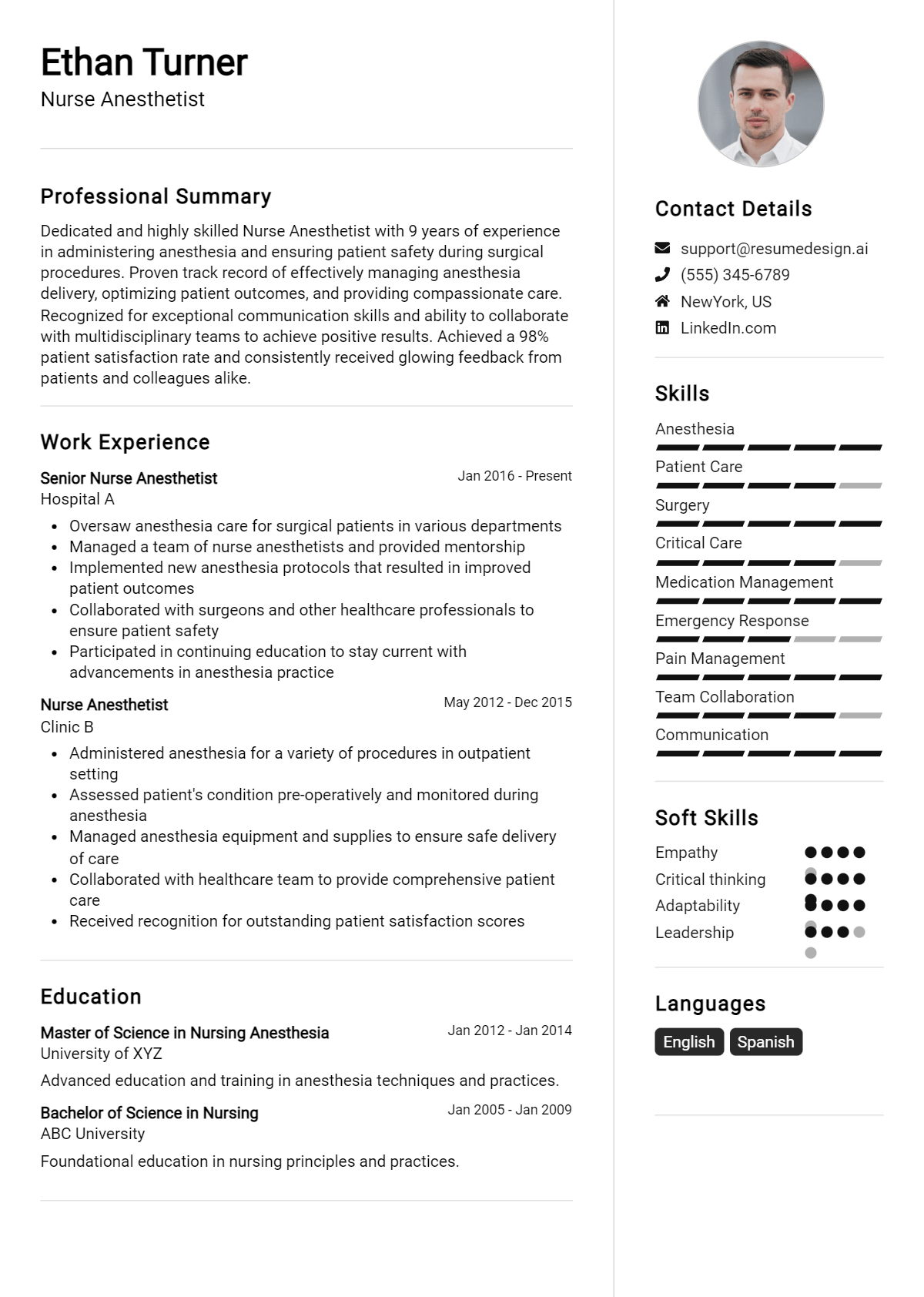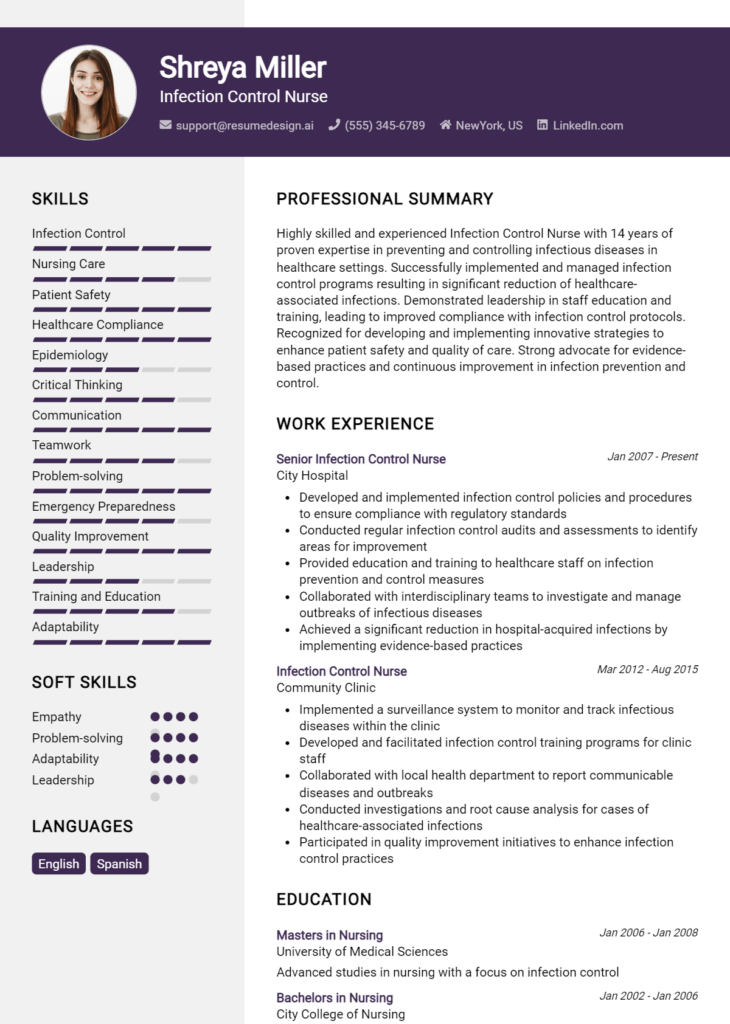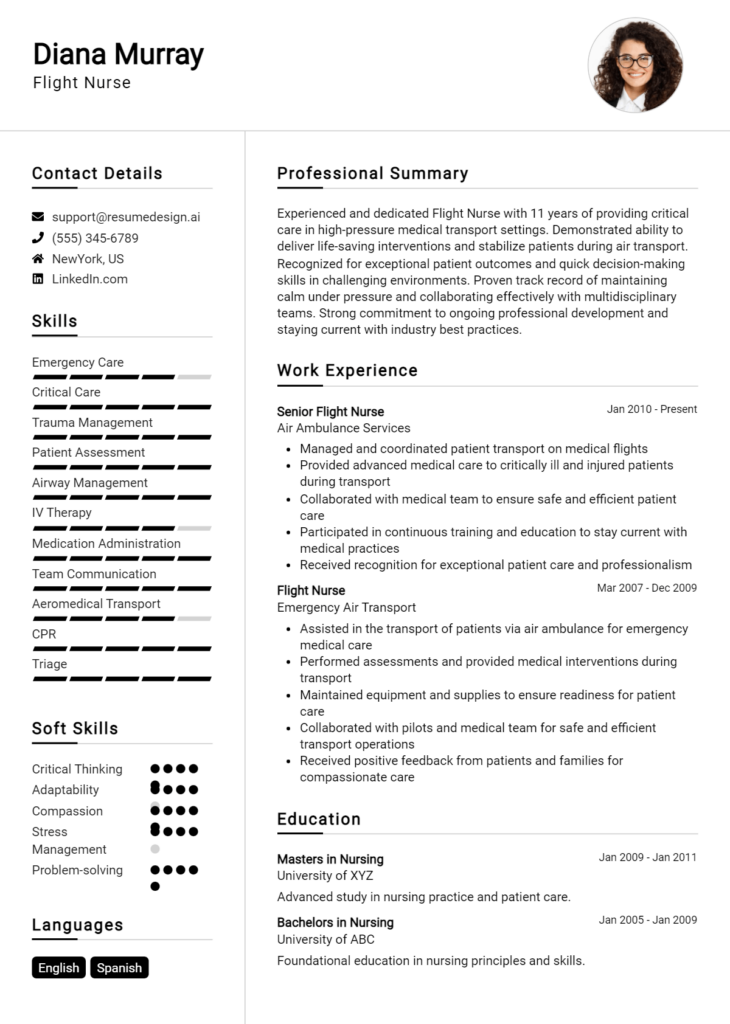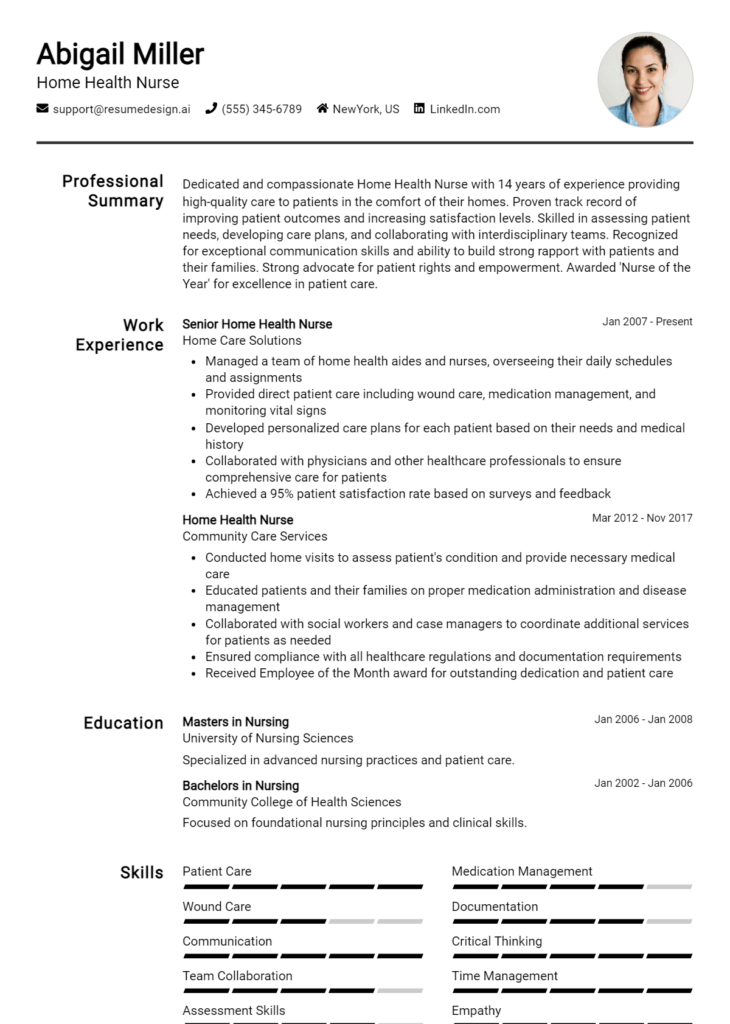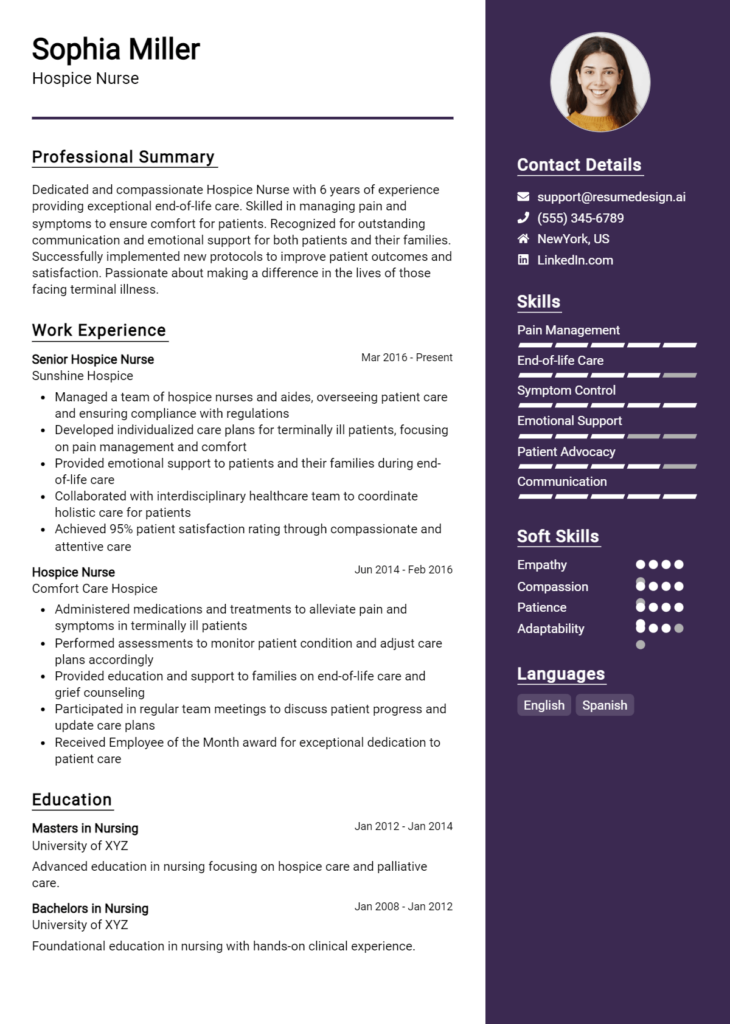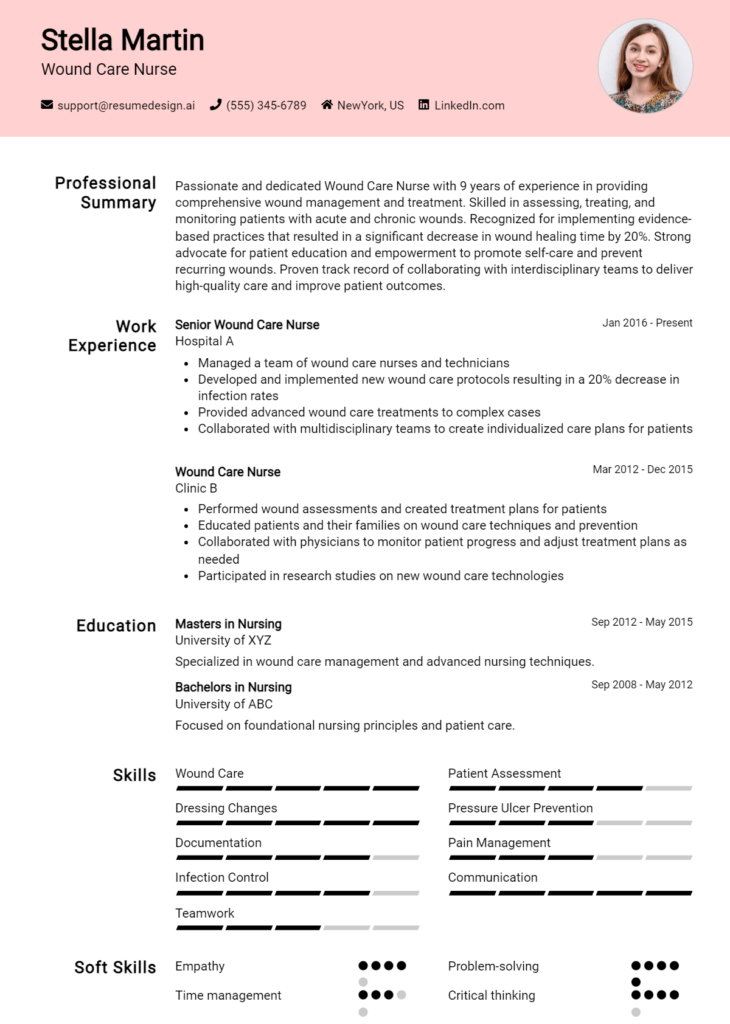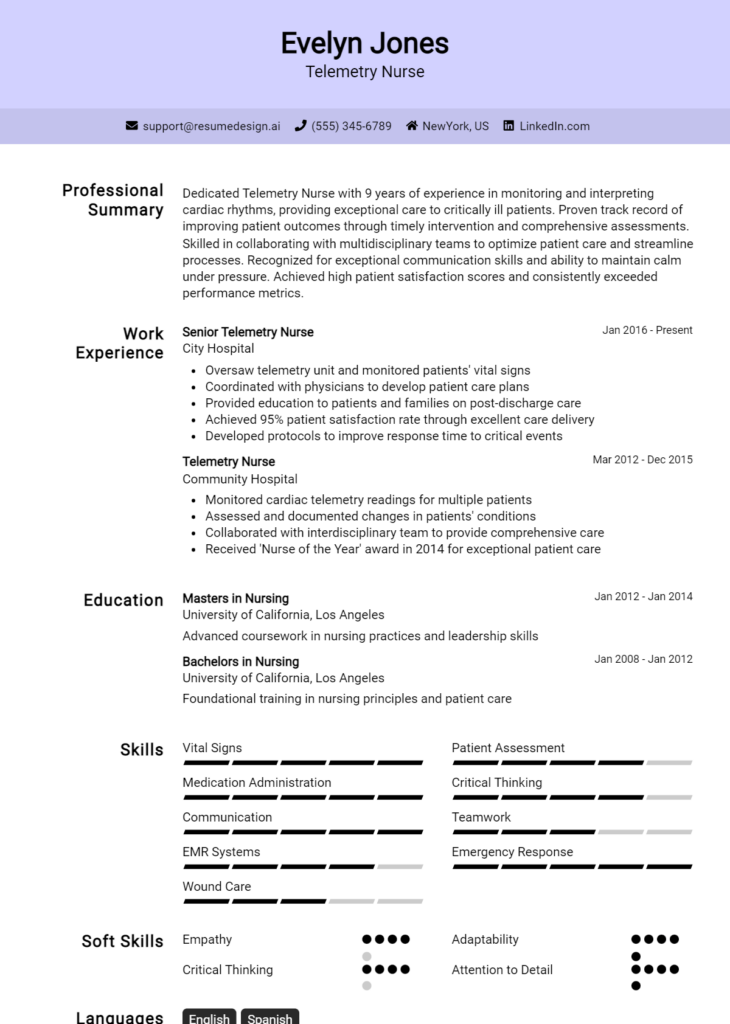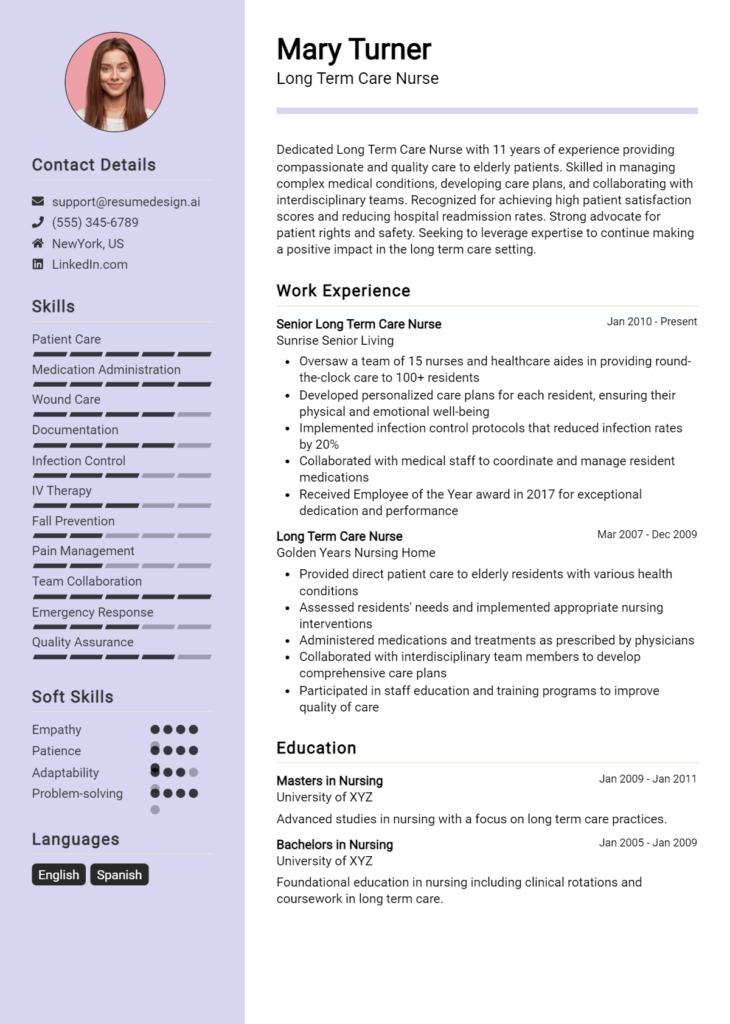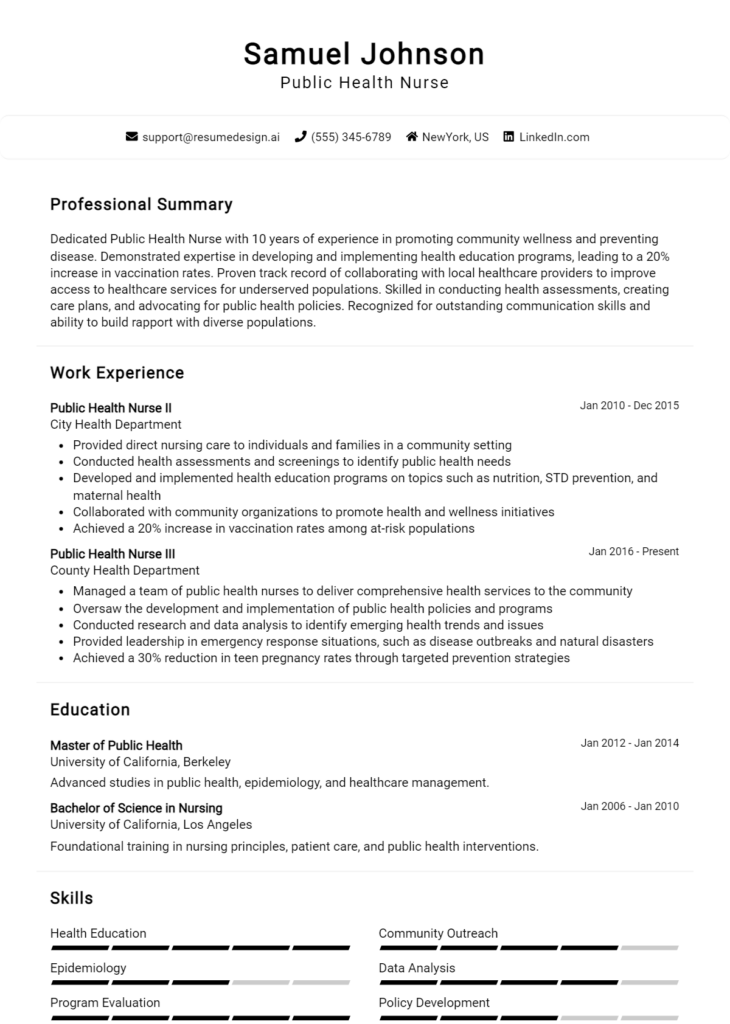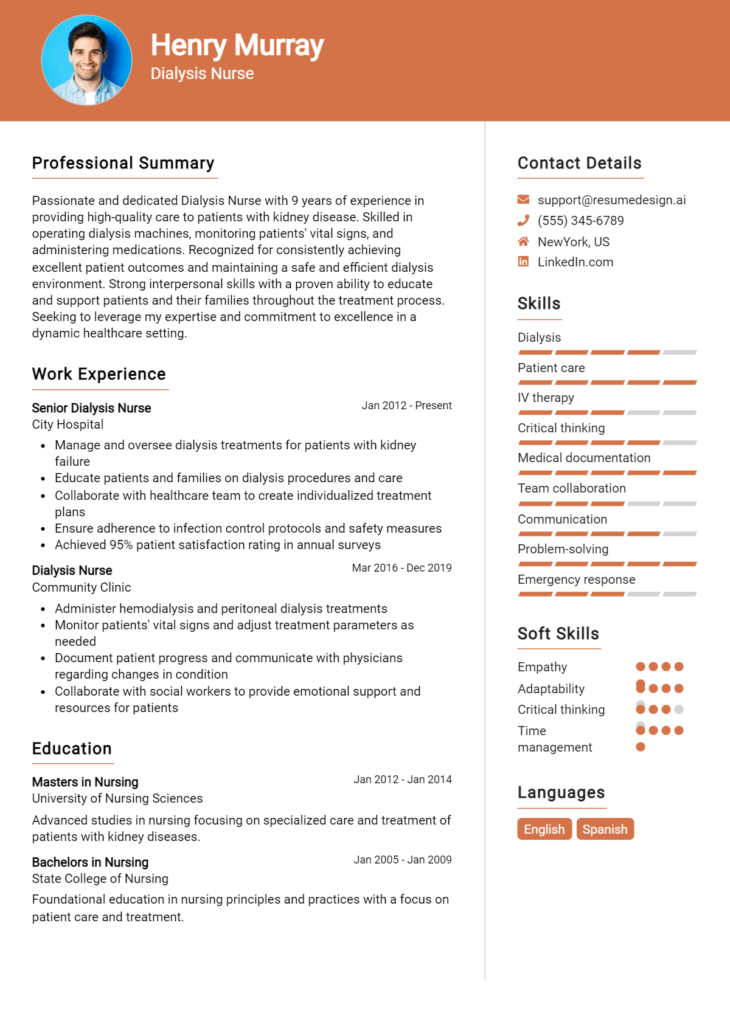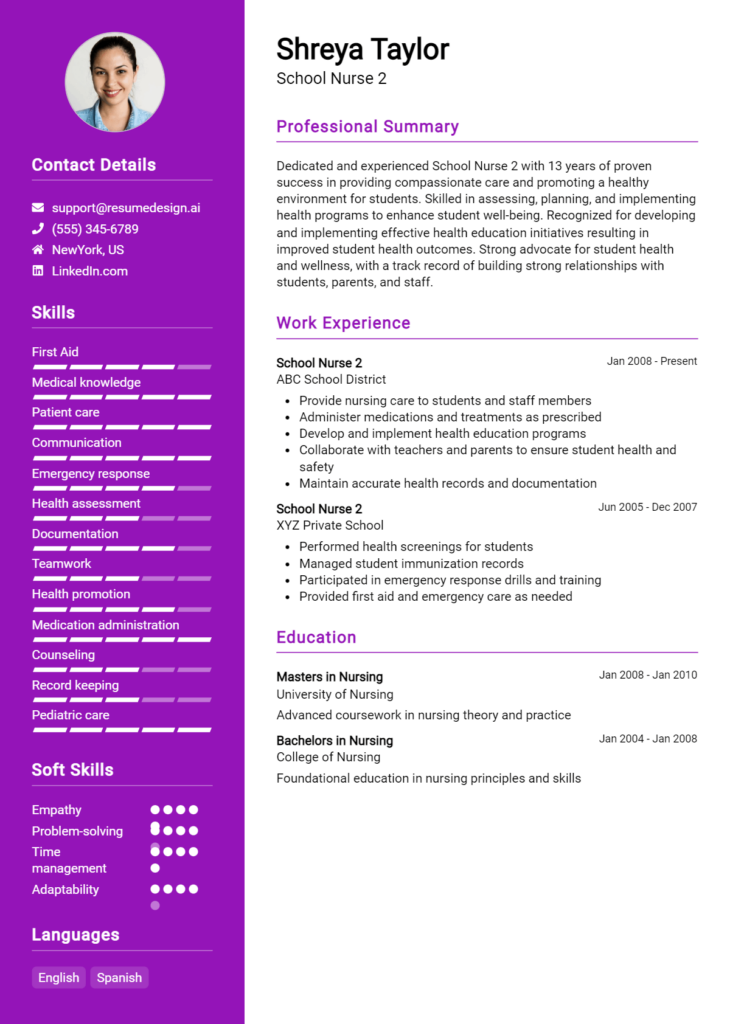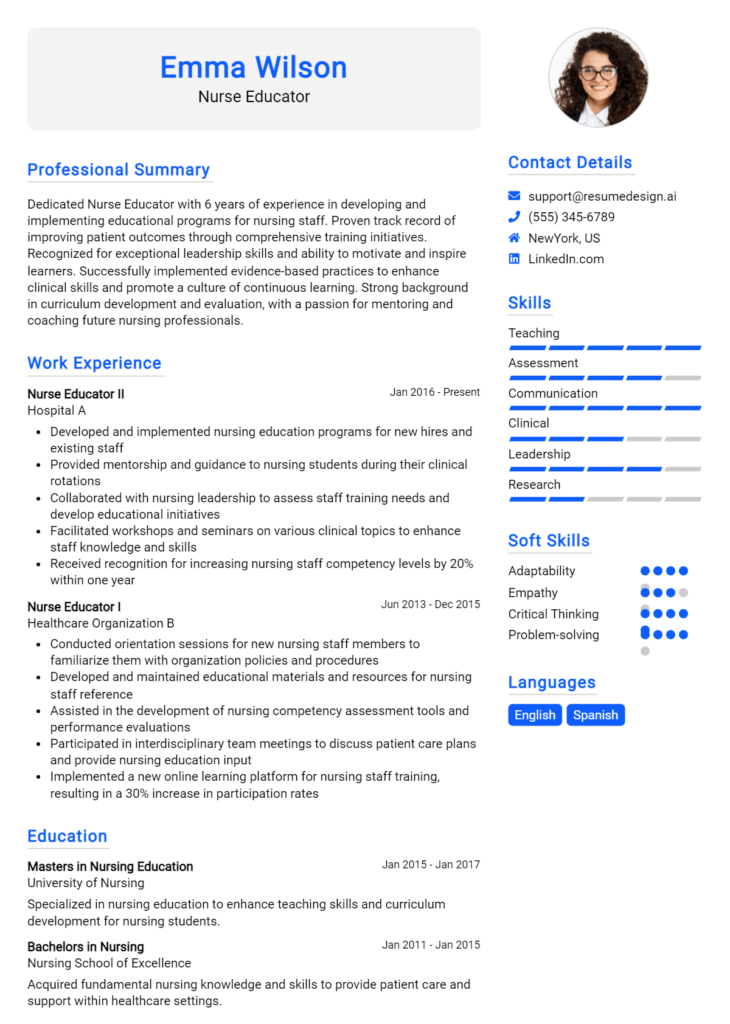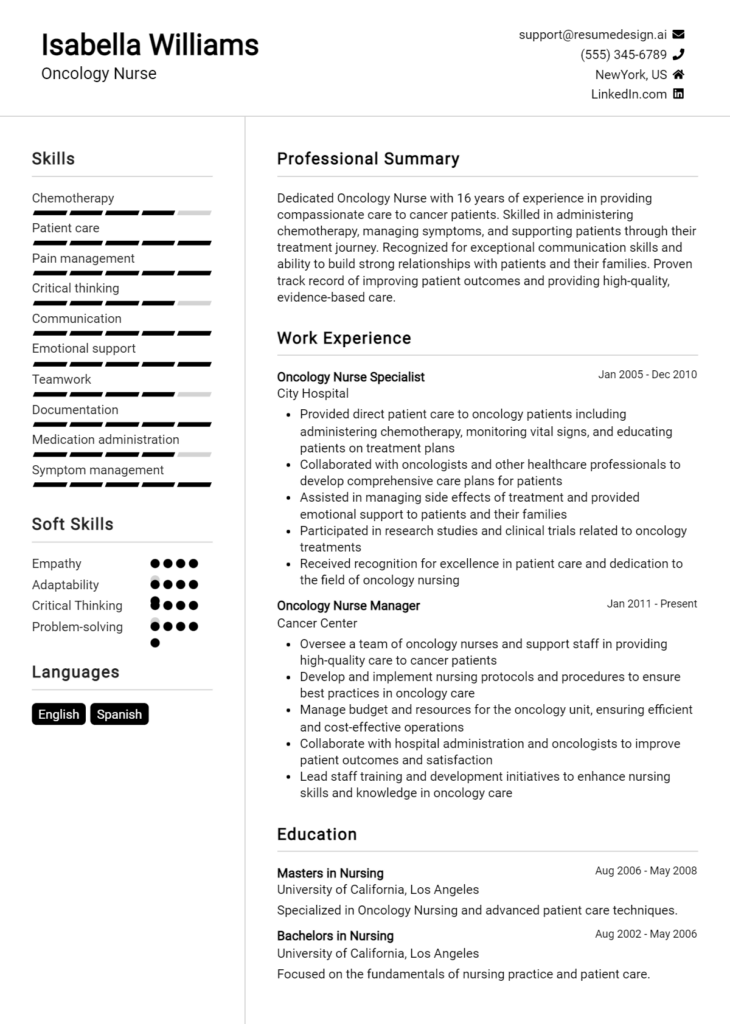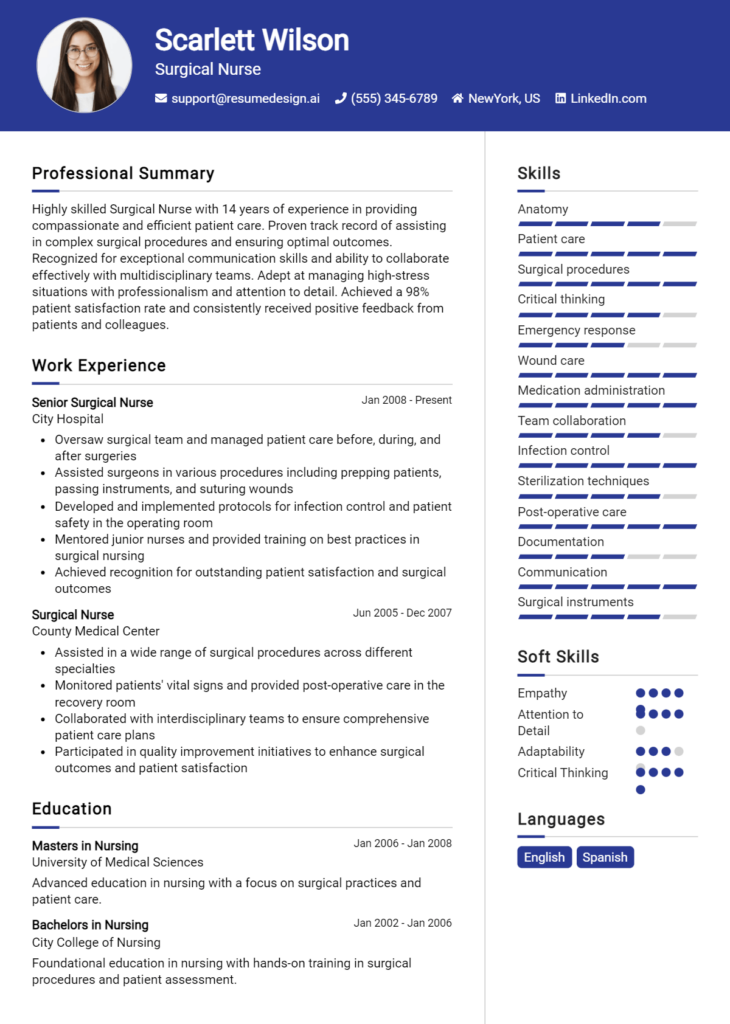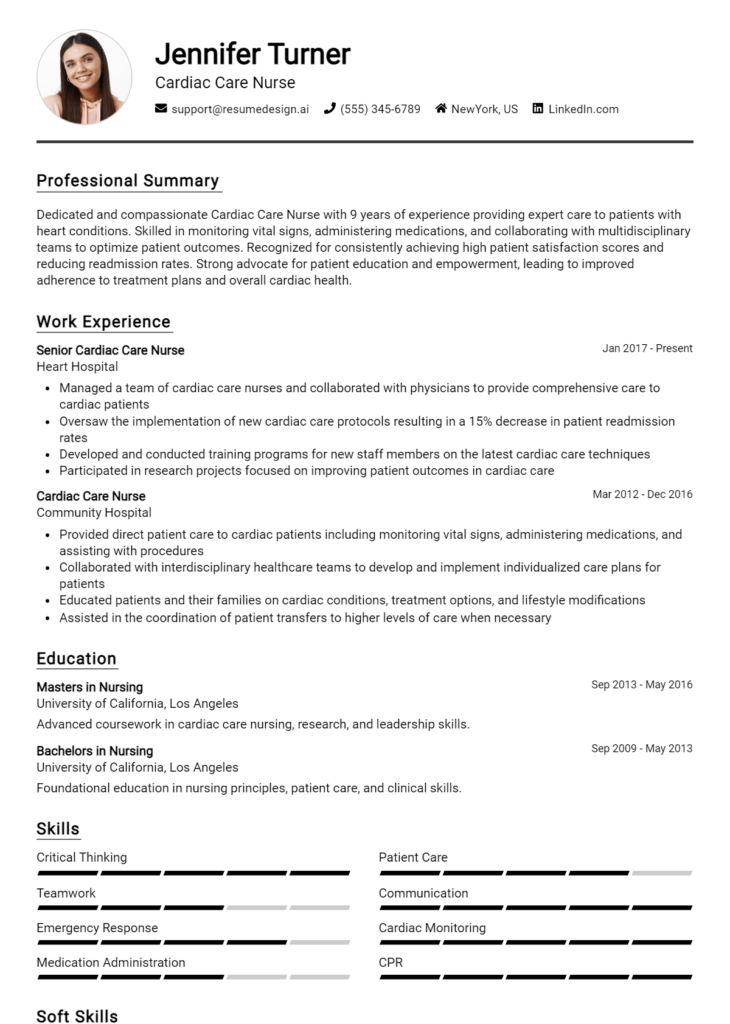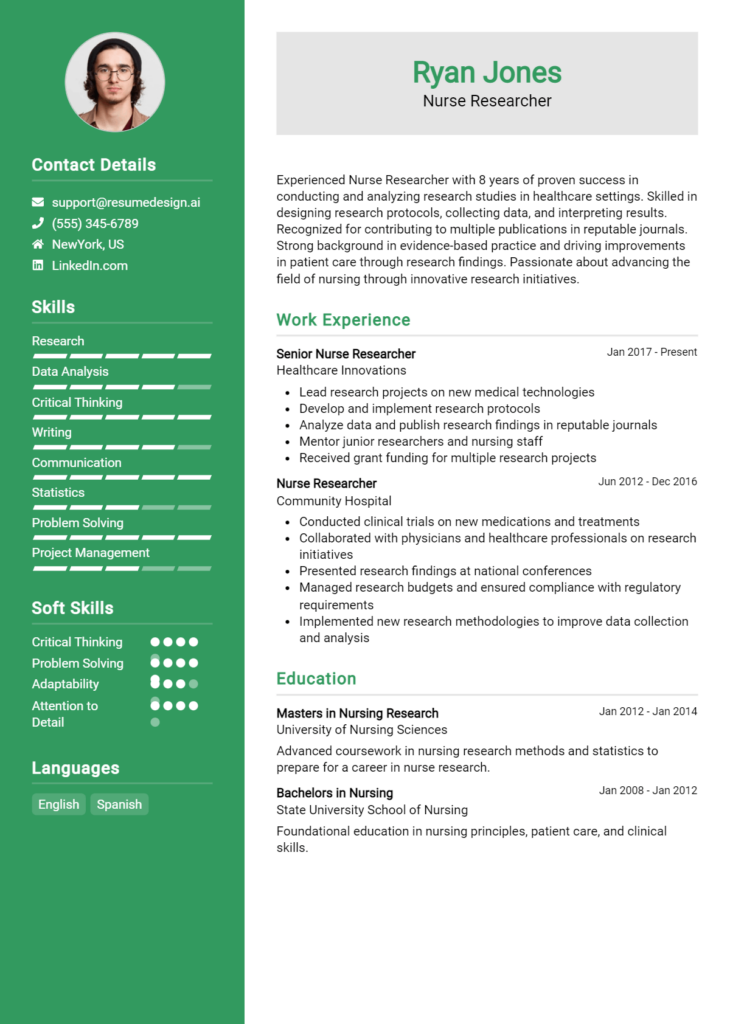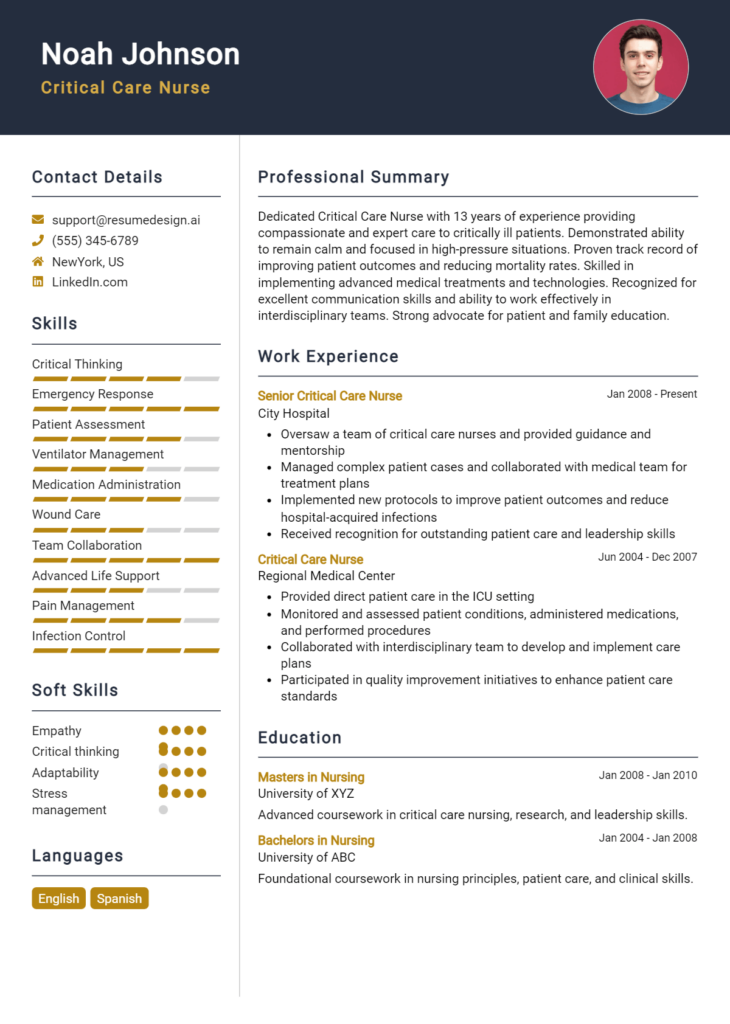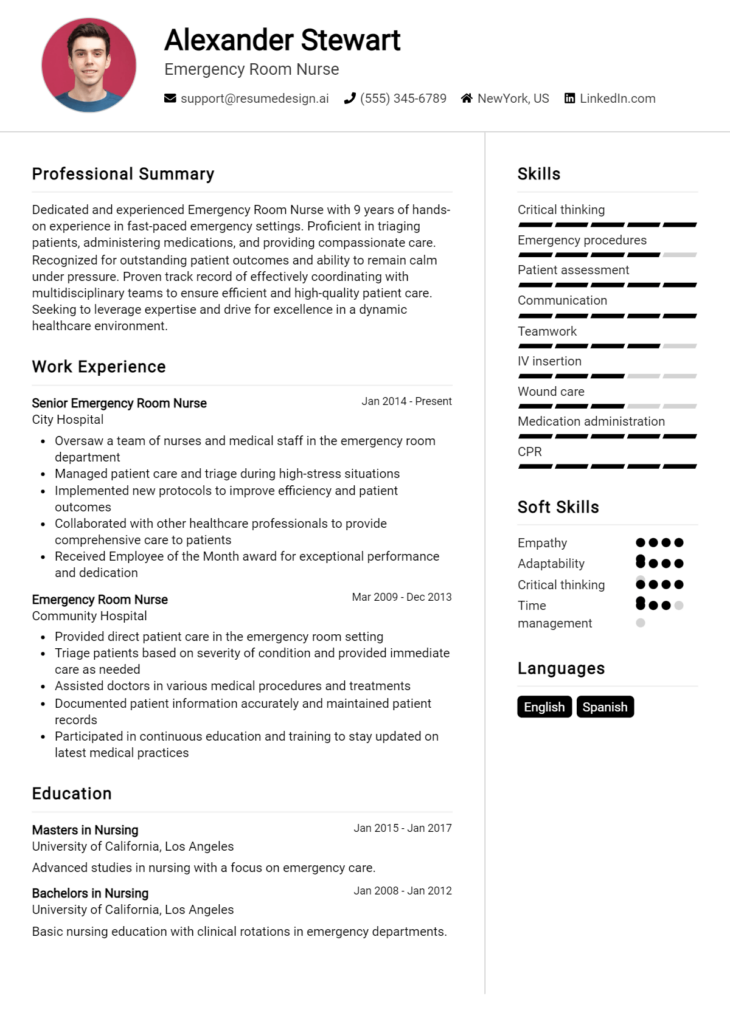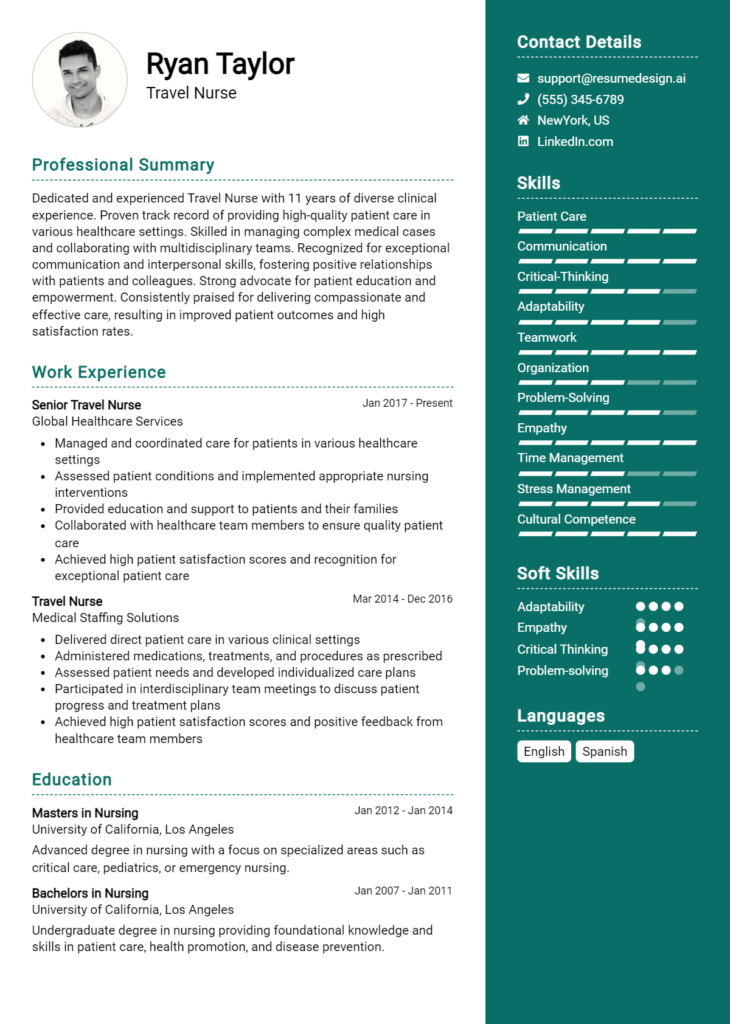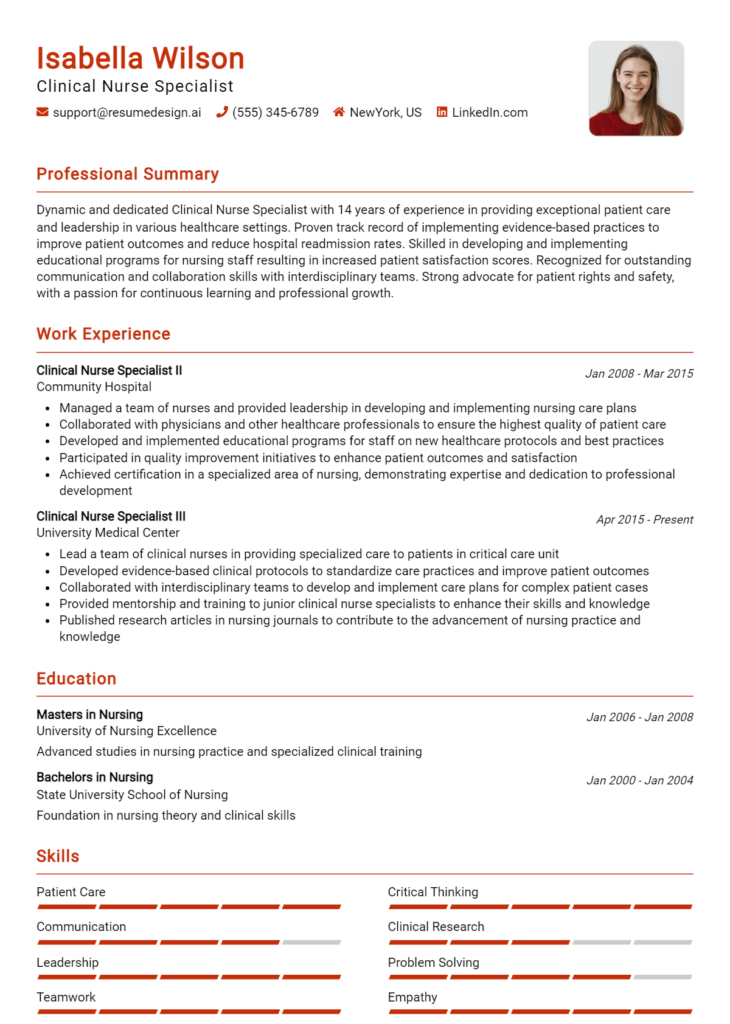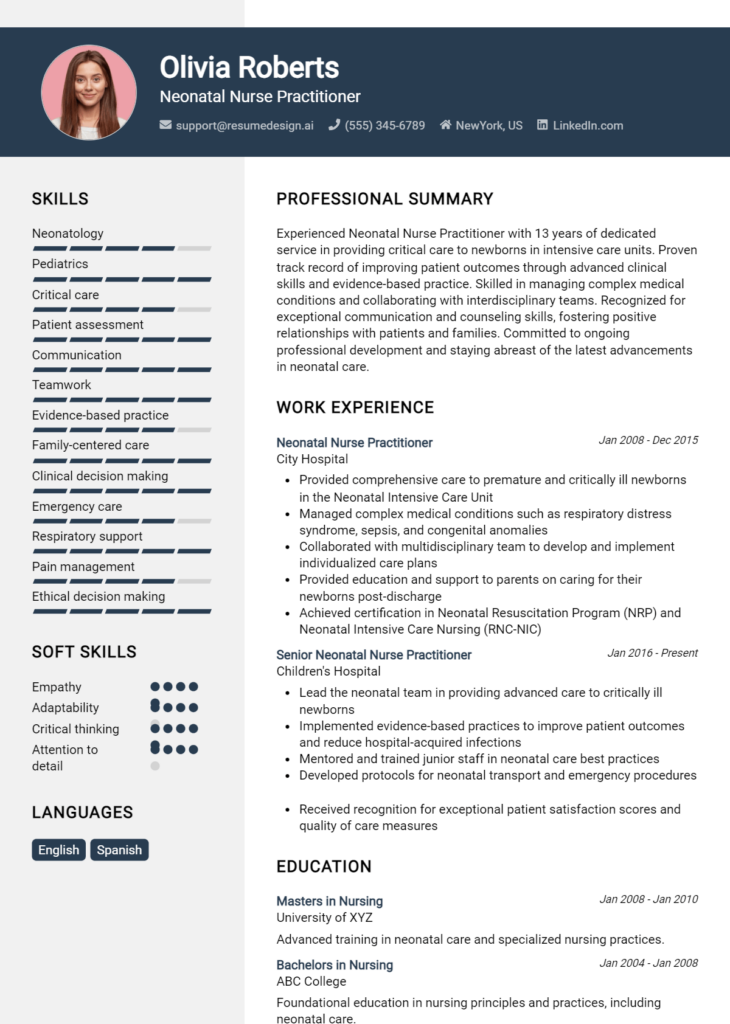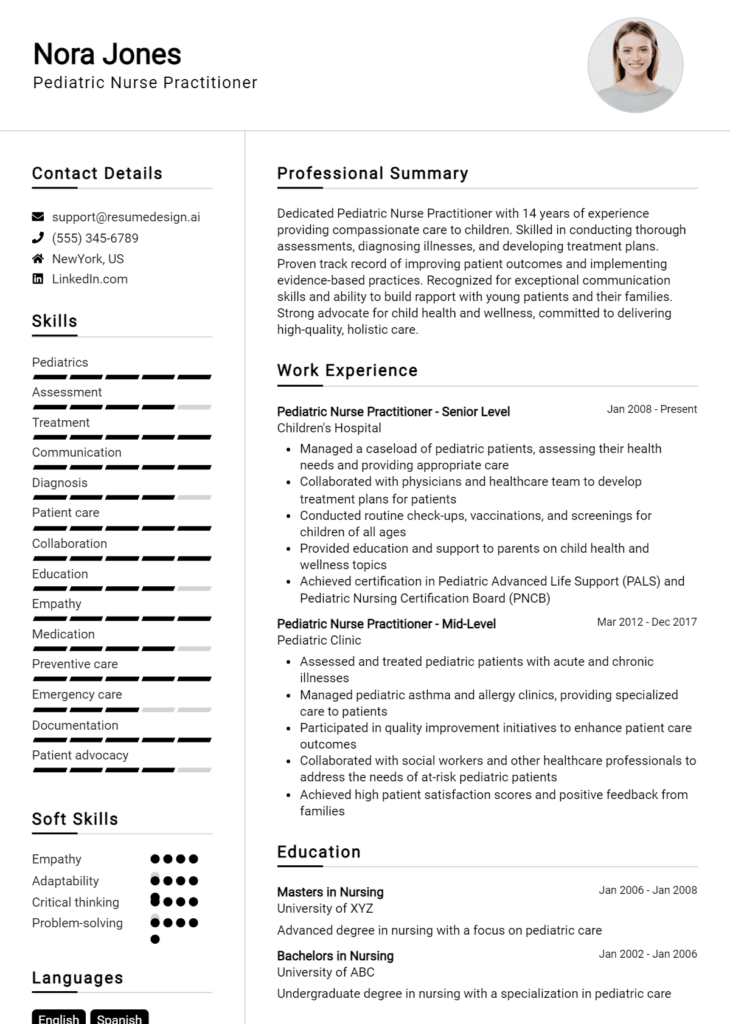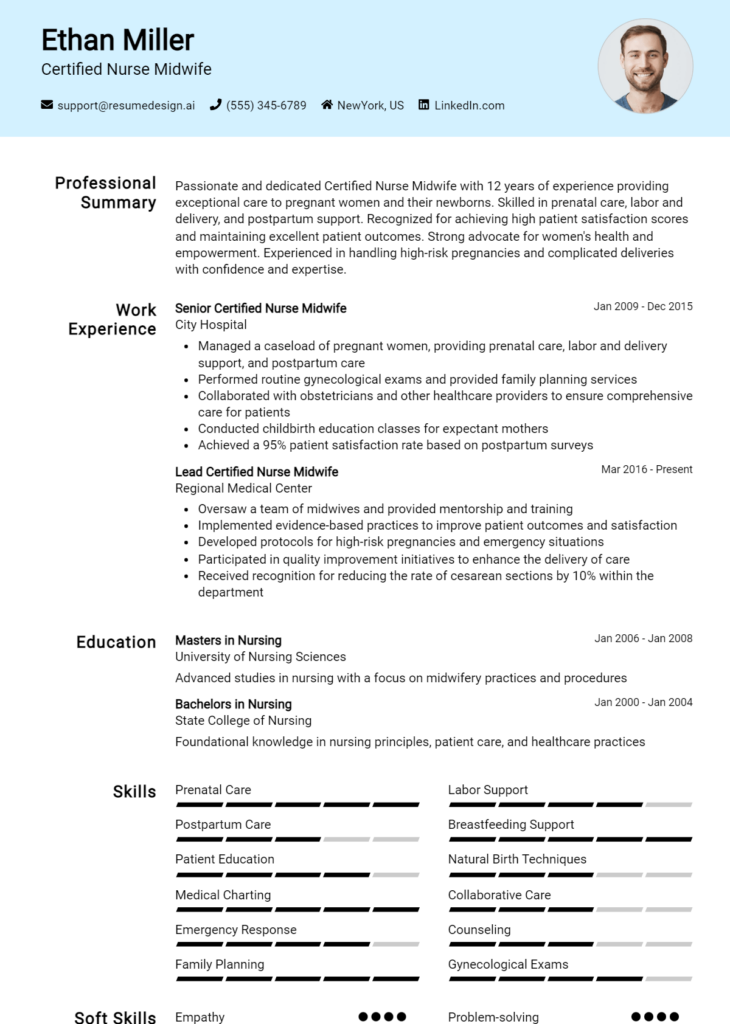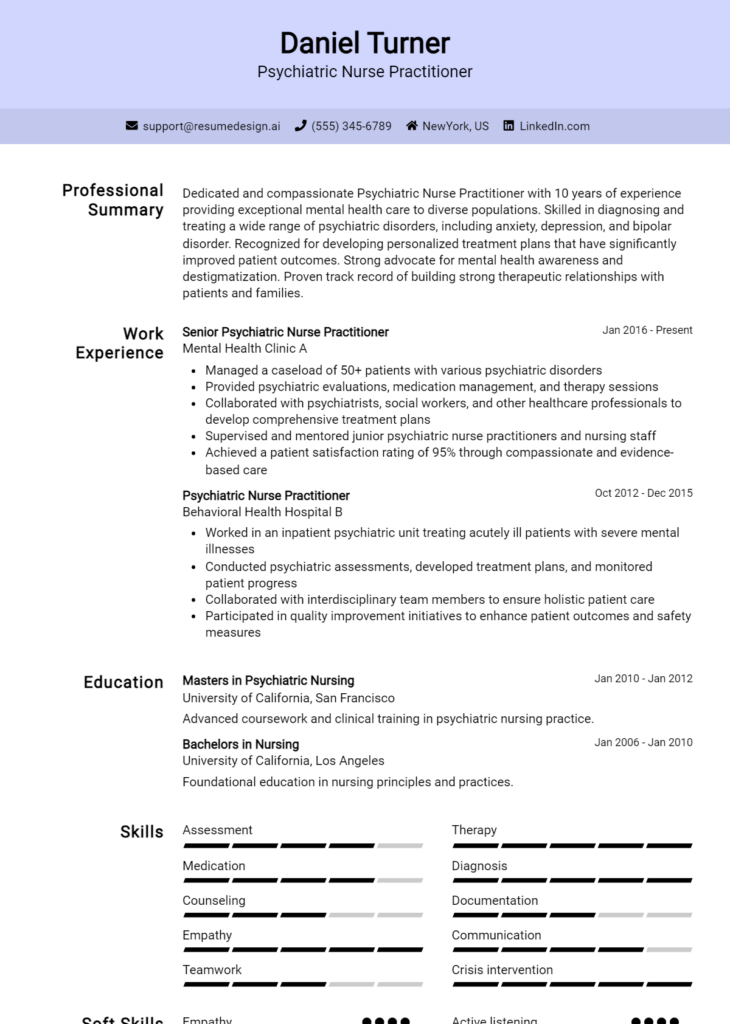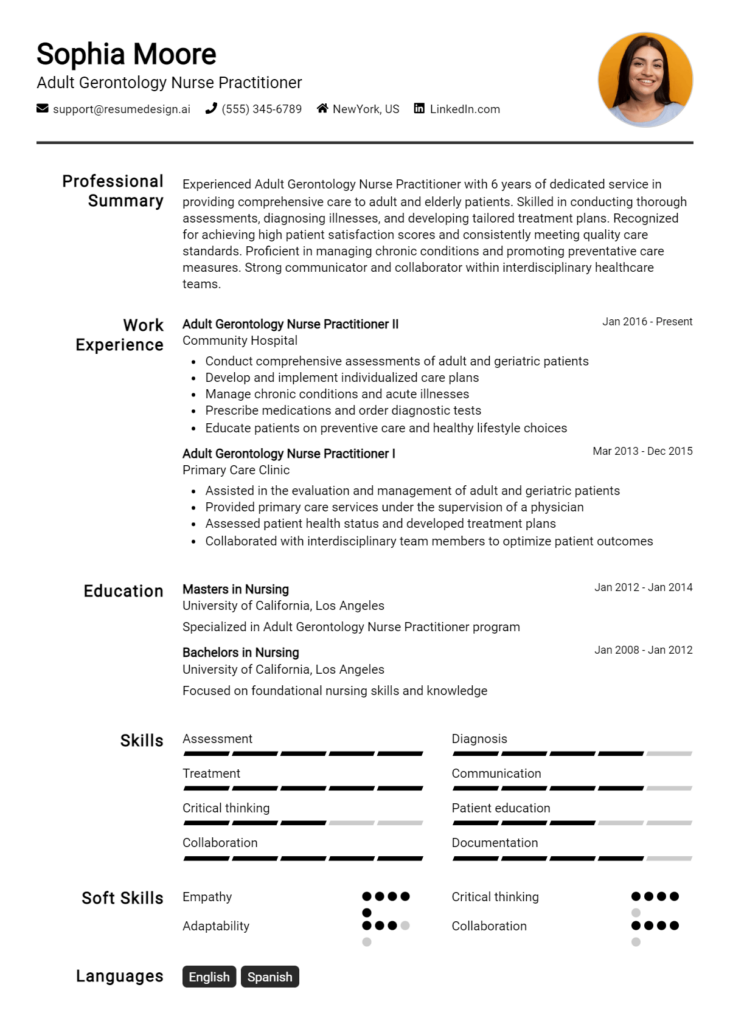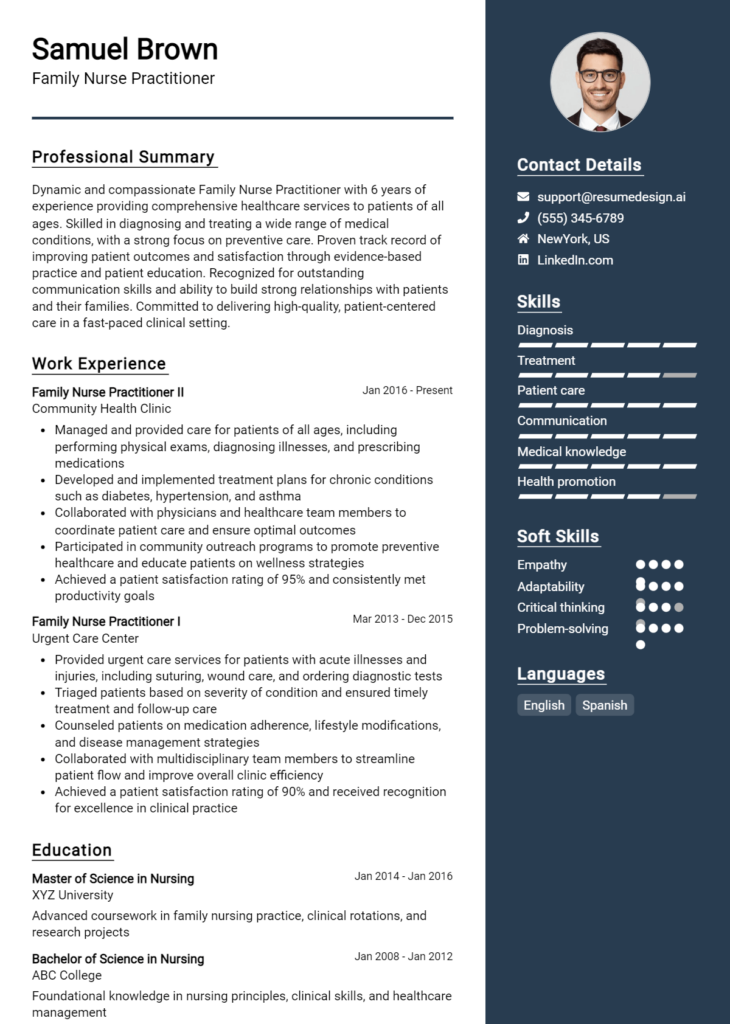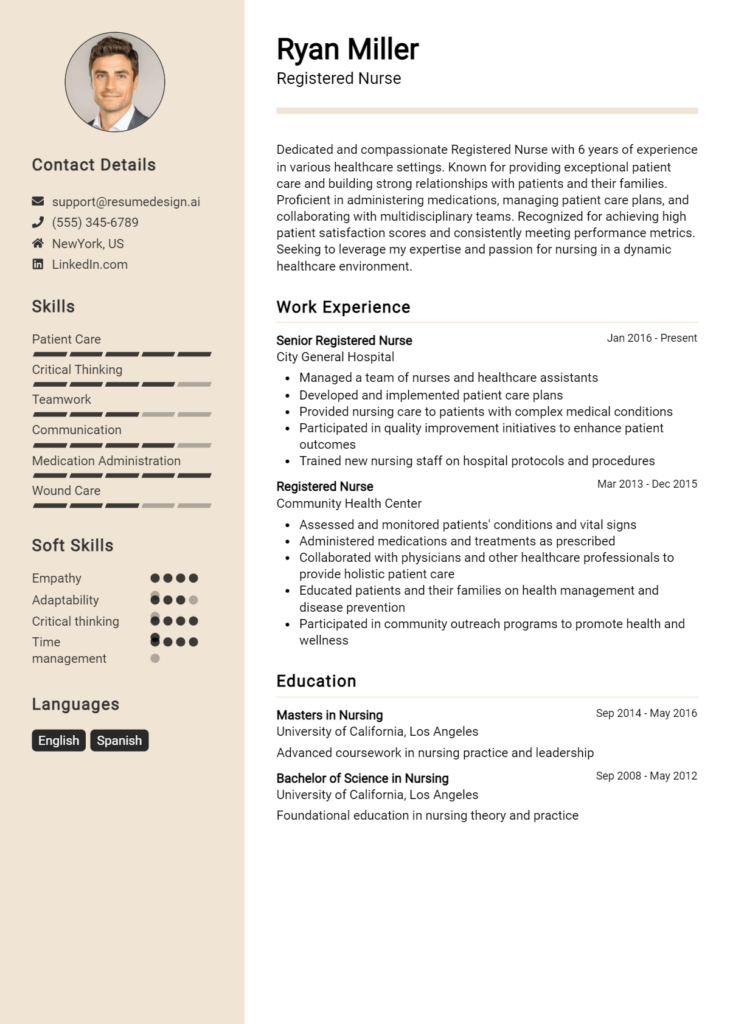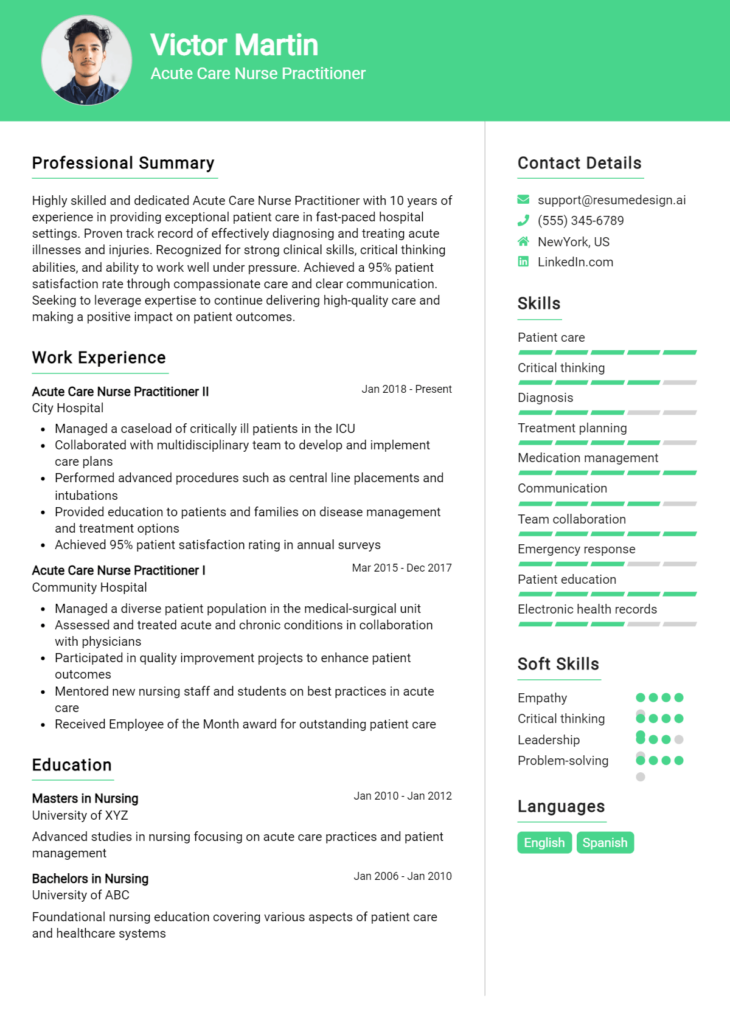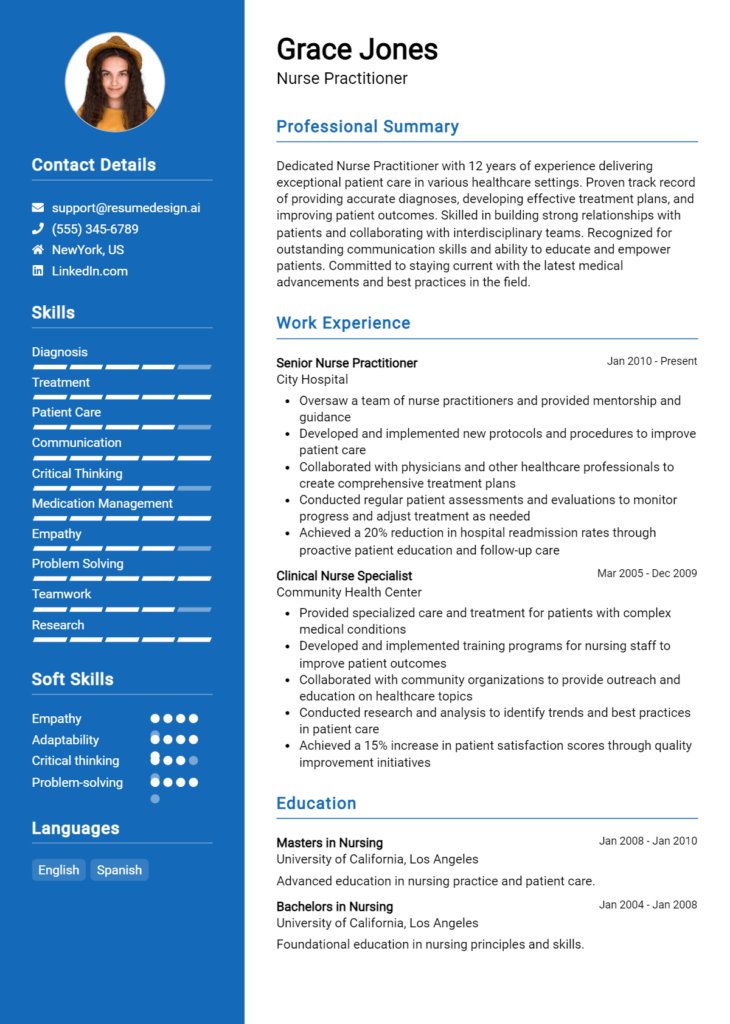Nurse Anesthetist Core Responsibilities
Nurse Anesthetists play a crucial role in the healthcare system, bridging the gap between surgical teams and patients. They are responsible for administering anesthesia, monitoring patient vital signs, and ensuring patient safety throughout procedures. Essential skills include technical proficiency in anesthesia techniques, strong operational management, and adept problem-solving abilities to address any complications that may arise. These competencies contribute to the organization’s overall goals of delivering high-quality care, making a well-structured resume vital for showcasing these qualifications effectively.
Common Responsibilities Listed on Nurse Anesthetist Resume
- Administer anesthesia and monitor patients before, during, and after surgical procedures.
- Conduct pre-anesthetic evaluations and develop individualized anesthetic plans.
- Collaborate with surgeons, anesthesiologists, and other healthcare professionals.
- Manage anesthesia equipment and ensure its proper function.
- Monitor patients’ vital signs and respond to emergencies.
- Educate patients and their families about anesthesia procedures and safety.
- Maintain accurate records of anesthesia administration and patient care.
- Participate in continuing education and professional development activities.
- Adhere to safety protocols and regulations in anesthesia practice.
- Evaluate patient responses to anesthesia and adjust as necessary.
High-Level Resume Tips for Nurse Anesthetist Professionals
In the competitive field of Nurse Anesthesia, a well-crafted resume serves as a vital tool for professionals aiming to make a lasting first impression on potential employers. Your resume is often the first glimpse hiring managers have of your qualifications, skills, and accomplishments, making it essential to present a polished and compelling narrative. A strong resume should not only highlight your extensive clinical expertise and relevant experience but also demonstrate your unique achievements and contributions to patient care. In this guide, we will provide practical and actionable resume tips specifically tailored for Nurse Anesthetist professionals, ensuring you stand out in the candidate pool.
Top Resume Tips for Nurse Anesthetist Professionals
- Tailor your resume to match the job description by incorporating keywords and phrases that reflect the specific requirements of the position.
- Highlight your relevant clinical experience, including different types of anesthesia techniques and patient populations you have worked with.
- Quantify your achievements where possible, such as the number of procedures performed, improvements in patient outcomes, or efficiency gains in anesthesia delivery.
- Showcase your certifications and licenses prominently, including your CRNA certification and any additional specialty certifications.
- Emphasize your skills in patient assessment, critical thinking, and teamwork, as these are essential in the Nurse Anesthetist role.
- Include professional development activities, such as continuing education courses, workshops, and relevant conferences you have attended.
- Utilize action verbs to convey your contributions effectively, such as "administered," "monitored," and "collaborated."
- Keep your resume concise and focused, ideally one to two pages, ensuring that each section adds value to your candidacy.
- Proofread your resume for grammatical errors and formatting inconsistencies to present a polished final product.
By implementing these targeted resume tips, Nurse Anesthetist professionals can significantly enhance their chances of landing desirable job opportunities. A focused and well-structured resume not only showcases your qualifications effectively but also communicates your dedication to the field, setting you apart in a highly competitive environment.
Why Resume Headlines & Titles are Important for Nurse Anesthetist
In the competitive field of nurse anesthesia, crafting a compelling resume is essential for standing out among numerous candidates. One of the most critical elements of a resume is the headline or title, which serves as the first impression for hiring managers. A strong resume headline can immediately grab attention and succinctly summarize a candidate's key qualifications, making it easier for employers to assess fit for the role quickly. It should be concise, relevant, and directly related to the nurse anesthetist position being applied for, effectively highlighting the applicant's strengths and expertise in the field.
Best Practices for Crafting Resume Headlines for Nurse Anesthetist
- Keep it concise: Aim for a brief statement that captures your qualifications in a few words.
- Be role-specific: Tailor the headline to reflect the nurse anesthetist position you are applying for.
- Highlight key strengths: Focus on your most relevant skills, experience, or accomplishments.
- Use action words: Start with strong verbs that convey confidence and capability.
- Incorporate keywords: Use terms from the job description to align your headline with the employer's needs.
- Avoid generic phrases: Steer clear of vague titles that do not provide insight into your qualifications.
- Make it impactful: Choose words that resonate with hiring managers and showcase your uniqueness.
- Reflect your experience level: Indicate your level of expertise, such as 'Experienced' or 'Certified', to provide context.
Example Resume Headlines for Nurse Anesthetist
Strong Resume Headlines
Certified Nurse Anesthetist with 5+ Years of Experience in Regional Anesthesia
Dedicated CRNA with Expertise in Pain Management and Critical Care
Experienced Nurse Anesthetist Committed to Patient-Centered Care and Safety
Skilled CRNA with Proven Track Record in High-Risk Anesthesia Procedures
Weak Resume Headlines
Nurse Looking for Job
Healthcare Professional
Anesthesia Experience
The strong headlines listed above effectively communicate the candidates' qualifications and areas of expertise, making an immediate impact on hiring managers. They are specific, tailored to the nurse anesthetist role, and highlight key skills and experience, providing a clear picture of what the candidate brings to the table. In contrast, the weak headlines fail to impress due to their vagueness and lack of specificity, offering little insight into the candidate's qualifications or suitability for the position. A compelling headline is crucial in making a positive first impression and capturing the attention of potential employers.
Writing an Exceptional Nurse Anesthetist Resume Summary
A resume summary is a critical component of a Nurse Anesthetist's resume, serving as a powerful first impression that can significantly influence a hiring manager's decision. This brief yet impactful introduction allows candidates to quickly highlight their key skills, extensive experience, and notable accomplishments relevant to the role. A well-crafted summary is concise and tailored to the specific job being applied for, ensuring that the most pertinent information is front and center. By effectively showcasing qualifications, a strong resume summary can capture the attention of hiring managers and set the stage for further consideration in the hiring process.
Best Practices for Writing a Nurse Anesthetist Resume Summary
- Quantify achievements: Use specific numbers or outcomes to demonstrate your impact in previous roles.
- Focus on relevant skills: Highlight skills that are directly applicable to the Nurse Anesthetist position you are seeking.
- Tailor the summary: Customize your resume summary for each job application to align with the job description.
- Be concise: Aim for 2-4 sentences that capture the essence of your experience and qualifications.
- Use active language: Implement strong action verbs to convey confidence and proactivity.
- Highlight certifications: Mention relevant certifications or special training that sets you apart from other candidates.
- Showcase interpersonal skills: Emphasize communication and teamwork abilities, essential for working in a healthcare environment.
- Keep it professional: Maintain a formal tone and avoid personal pronouns to enhance professionalism.
Example Nurse Anesthetist Resume Summaries
Strong Resume Summaries
Dedicated Nurse Anesthetist with over 5 years of experience delivering safe anesthesia care in high-pressure surgical settings. Successfully managed anesthesia for over 1,200 patients with a focus on effective pain management and patient safety, leading to a 98% patient satisfaction rate.
Compassionate and detail-oriented Nurse Anesthetist with a proven track record of administering anesthesia for diverse surgical procedures. Recognized for reducing anesthesia-related complications by 15% through vigilant monitoring and immediate intervention strategies.
Experienced Nurse Anesthetist with a solid background in pain management and sedation practices. Effectively collaborated with multidisciplinary teams to optimize patient outcomes, resulting in a 20% decrease in recovery time for patients.
Weak Resume Summaries
Nurse Anesthetist with some experience in the field looking for a new opportunity. I am a hard worker and can help with anesthesia.
I have been a Nurse Anesthetist for a while and know how to provide anesthesia. I am looking for a job where I can use my skills.
The examples provided illustrate the distinct differences between strong and weak resume summaries. The strong summaries effectively quantify achievements and highlight relevant skills, making them compelling and tailored to the Nurse Anesthetist role. In contrast, the weak summaries are vague and lack specific outcomes, making them less engaging and ineffective in showcasing the candidate's qualifications. A strong resume summary not only captures attention but also sets a positive tone for the rest of the resume.
Work Experience Section for Nurse Anesthetist Resume
The work experience section of a Nurse Anesthetist resume is crucial as it provides a comprehensive overview of the candidate's practical skills and professional background. This section not only highlights the technical competencies essential for administering anesthesia safely but also showcases leadership abilities and teamwork in high-pressure environments. By quantifying achievements and aligning experiences with industry standards, candidates can effectively demonstrate their value and readiness to excel in this critical healthcare role.
Best Practices for Nurse Anesthetist Work Experience
- Clearly outline your technical skills related to anesthesia administration and patient monitoring.
- Quantify achievements, such as the number of procedures performed or patient outcomes improved.
- Emphasize collaborative experiences, detailing how you worked with surgeons, nurses, and other healthcare professionals.
- Highlight leadership roles, such as supervising junior staff or leading anesthesia teams.
- Include relevant certifications and specialized training in the work experience descriptions.
- Align your experience with current industry standards and best practices in anesthesia.
- Use action verbs to convey your contributions and impact effectively.
- Tailor your experience to the job description to enhance relevance and appeal to hiring managers.
Example Work Experiences for Nurse Anesthetist
Strong Experiences
- Administered anesthesia for over 500 surgical procedures, achieving a 98% patient satisfaction rate and contributing to a 15% reduction in postoperative complications.
- Led a team of 5 nurse anesthetists during a high-volume surgical week, ensuring efficient workflow and maintaining compliance with safety protocols.
- Implemented a new anesthesia monitoring protocol that improved patient recovery times by 20%, resulting in enhanced overall departmental efficiency.
- Collaborated with multidisciplinary teams to develop a pain management program that decreased opioid use by 30% among surgical patients.
Weak Experiences
- Assisted in the administration of anesthesia during surgeries.
- Worked with other healthcare professionals to provide patient care.
- Participated in various anesthesia-related activities.
- Provided anesthesia support in the operating room.
The strong experiences are considered effective because they provide specific, measurable outcomes that demonstrate the candidate's impact on patient care and team performance. They showcase leadership and collaboration in clear terms, making it easy for potential employers to assess the candidate's qualifications. In contrast, the weak experiences lack detail and quantifiable results, making them less compelling and failing to highlight the candidate's true capabilities in the role of a Nurse Anesthetist.
Education and Certifications Section for Nurse Anesthetist Resume
The education and certifications section of a Nurse Anesthetist resume is vital as it serves to showcase the candidate's academic qualifications, specialized training, and commitment to ongoing professional development. This section not only highlights the essential degrees and certifications required for the role, but it also emphasizes the candidate's dedication to maintaining current knowledge in a rapidly evolving field. By providing relevant coursework, industry-recognized certifications, and evidence of continuous learning, candidates can significantly enhance their credibility and demonstrate their alignment with the expectations of healthcare employers.
Best Practices for Nurse Anesthetist Education and Certifications
- List your highest degree first, including the degree title, major, institution, and graduation date.
- Include relevant coursework that directly relates to anesthesiology and advanced nursing practices.
- Highlight any industry-recognized certifications, such as the Certified Registered Nurse Anesthetist (CRNA) credential.
- Showcase any specialized training or fellowships completed in the field of anesthesiology.
- Keep the format clear and consistent for easy readability.
- Update the section regularly to reflect the most current qualifications and continuing education efforts.
- Use bullet points to make it easy for hiring managers to scan for pertinent information.
- Consider including honors or distinctions received during your academic training.
Example Education and Certifications for Nurse Anesthetist
Strong Examples
- Master of Science in Nursing (MSN), Nurse Anesthesia, University of Anesthesia, Graduated May 2021
- Certified Registered Nurse Anesthetist (CRNA), National Board of Certification and Recertification for Nurse Anesthetists, Certified since June 2021
- Advanced Cardiac Life Support (ACLS) Certification, American Heart Association, Renewed August 2023
- Pediatric Advanced Life Support (PALS) Certification, American Heart Association, Renewed September 2023
Weak Examples
- Bachelor of Arts in English Literature, State University, Graduated May 2010
- Basic Life Support (BLS) Certification, Expired December 2021
- Certificate in Medical Administration, Online Course, Completed March 2019
- Attended a workshop on General Nursing Practices, No certification received, April 2020
The strong examples are considered effective because they directly align with the requirements for a Nurse Anesthetist, showcasing relevant degrees, certifications, and continuous education in anesthesiology. Conversely, the weak examples fail to demonstrate a direct connection to the Nurse Anesthetist role, featuring unrelated degrees and outdated or non-specific certifications that do not enhance the candidate's qualifications for this specialized field.
Top Skills & Keywords for Nurse Anesthetist Resume
As a Nurse Anesthetist, possessing a diverse set of skills is crucial for delivering safe and effective anesthesia care. A well-crafted resume highlights these abilities, demonstrating your readiness to handle the complexities of patient management before, during, and after anesthesia. Employers seek candidates who not only have the technical proficiency required for the role but also the soft skills necessary for effective communication and teamwork in high-pressure environments. By emphasizing both hard and soft skills, you can create a compelling resume that captures the attention of hiring managers and showcases your qualifications in this critical nursing specialty.
Top Hard & Soft Skills for Nurse Anesthetist
Soft Skills
- Excellent communication skills
- Strong critical thinking
- Compassionate patient care
- Team collaboration
- Adaptability to changing situations
- Attention to detail
- Strong problem-solving abilities
- Emotional intelligence
- Time management
- Leadership capabilities
Hard Skills
- Proficient in anesthesia techniques
- Knowledge of pharmacology
- Ability to monitor vital signs
- Expertise in airway management
- Proficient in patient assessment
- Knowledge of anesthesia equipment
- Experience with advanced life support
- Familiarity with electronic health records (EHR)
- Understanding of pain management protocols
- Ability to perform regional anesthesia techniques
For a comprehensive overview of how to effectively showcase these skills and how to detail your work experience, consider tailoring your resume to highlight your unique qualifications and experiences as a Nurse Anesthetist.
Stand Out with a Winning Nurse Anesthetist Cover Letter
Dear [Hiring Manager's Name],
I am writing to express my interest in the Nurse Anesthetist position at [Hospital/Clinic Name], as advertised on [where you found the job posting]. With a Master’s degree in Nurse Anesthesia and over [X years] of clinical experience in diverse surgical settings, I am confident in my ability to deliver high-quality patient care and contribute effectively to your esteemed team. My background in anesthetic administration, patient assessment, and post-anesthesia care has equipped me with the skills necessary to thrive in fast-paced environments while ensuring patient safety and comfort.
Throughout my career, I have honed my expertise in a variety of anesthetic techniques, including general, regional, and monitored anesthesia care. I have successfully managed anesthesia for patients undergoing complex surgeries, consistently demonstrating my ability to assess individual patient needs and tailor anesthesia plans accordingly. My commitment to continuing education has kept me abreast of the latest advancements in anesthesia practices, enabling me to implement evidence-based techniques and improve patient outcomes. Moreover, my strong communication skills foster collaborative relationships with surgical teams, allowing for seamless coordination and enhanced patient experiences.
I am particularly drawn to [Hospital/Clinic Name] due to its reputation for excellence in patient care and its commitment to innovation in anesthesia practices. I am eager to contribute my skills and passion for anesthesia to your team while learning from the exceptional professionals at your facility. I believe that my dedication to patient-centered care aligns perfectly with your institution's values and mission. I look forward to the opportunity to discuss how my background and aspirations can be a valuable addition to your organization.
Thank you for considering my application. I hope to speak with you soon to explore the possibility of joining [Hospital/Clinic Name] as a Nurse Anesthetist.
Sincerely,
[Your Name]
[Your Contact Information]
[Your LinkedIn Profile or Professional Website, if applicable]
Common Mistakes to Avoid in a Nurse Anesthetist Resume
When crafting a resume for a Nurse Anesthetist position, it’s crucial to present oneself as a highly skilled and knowledgeable professional in the field. However, many applicants make common mistakes that can hinder their chances of landing an interview. Avoiding these pitfalls can significantly enhance the effectiveness of your resume and showcase your qualifications more compellingly. Below are some common mistakes to steer clear of:
Neglecting to Tailor the Resume: Failing to customize your resume for each specific job application can make it appear generic. Highlight relevant skills and experiences that align with the job description.
Using an Unprofessional Email Address: An email address that is overly casual or whimsical can create a negative impression. Stick to a simple format, ideally combining your first and last name.
Overloading with Jargon: While it's important to demonstrate expertise, excessively using technical jargon can alienate readers. Balance specific terms with clear explanations to ensure understanding.
Omitting Relevant Certifications: Nurse Anesthetists need specific certifications and licenses. Ensure these are prominently displayed, as they are critical for the position.
Listing Job Duties Instead of Achievements: Simply stating job duties does not highlight your contributions. Focus on achievements and outcomes that demonstrate your impact in previous roles.
Ignoring Formatting Consistency: Inconsistent formatting can make a resume look unprofessional. Use uniform font styles, sizes, and bullet points throughout for clarity.
Failing to Include Continuing Education: The field of anesthesiology is continually evolving. Highlight any ongoing education or professional development to show your commitment to staying current.
Writing in Long Paragraphs: Long blocks of text can be overwhelming and difficult to read. Use bullet points and concise sentences to improve readability and emphasize key points.
Conclusion
In this article, we explored the vital role of Nurse Anesthetists in the healthcare system, emphasizing their responsibilities in administering anesthesia and monitoring patients throughout surgical procedures. We discussed the necessary educational background, certifications, and skills essential for success in this profession. Additionally, we highlighted the importance of effective communication and collaboration with surgical teams to ensure patient safety and optimal outcomes.
As you consider your career as a Nurse Anesthetist, it’s crucial to present your experience and qualifications effectively. An outstanding resume can set you apart in a competitive job market. We encourage you to take the next step in your career journey by reviewing and refining your Nurse Anesthetist resume today.
To assist you in this process, we recommend utilizing helpful resources such as resume templates, which can provide a solid foundation for your resume layout. You might also explore our resume builder to create a personalized and professional resume that highlights your skills and experiences. Don't forget to check out our resume examples for inspiration and ideas on how to present your qualifications effectively. Lastly, if you need to accompany your resume with a strong application, consider using our cover letter templates to craft a compelling narrative about your professional journey.
Take action now and elevate your career in Nurse Anesthesia with a polished resume!

